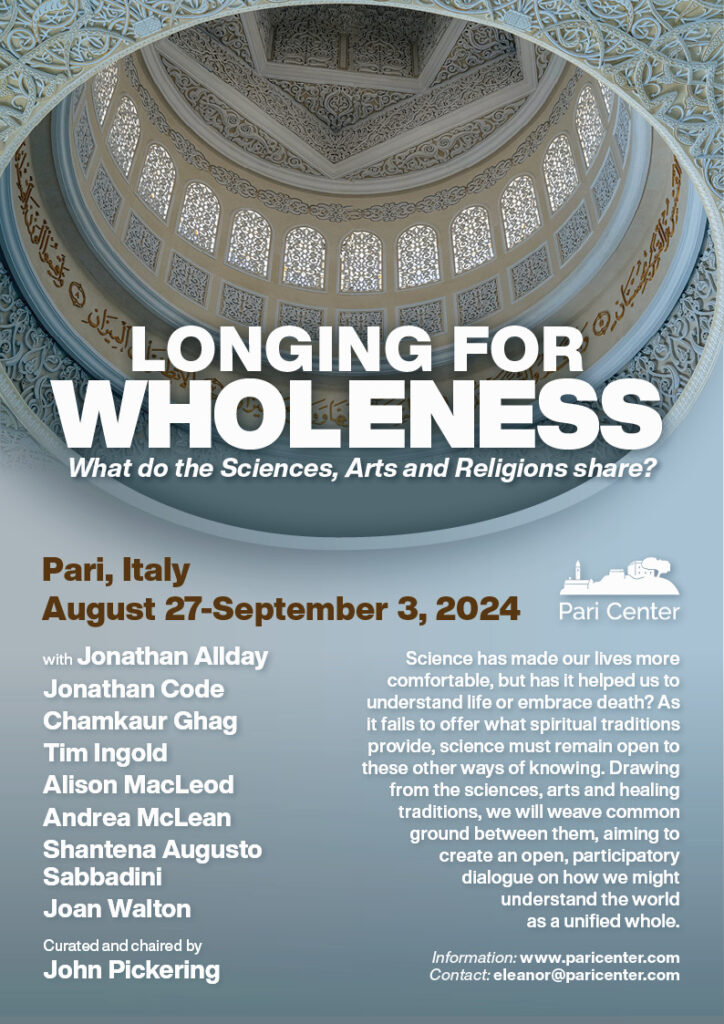Your cart is currently empty!
Cultivating Imaginative Cognition: The Time is at Hand!

This is an excerpt from one of the presentations featured in the Pari Center’s event Longing for Wholeness, in Pari from August 27 to September 3, 2024.
Presented with a seemingly compounding and confounding array of crises in both social and natural domains today, we are faced with some stark challenges. Are solutions to these crises to be found in greater technological innovation? In ever more sophisticated manipulation of our soils? Our surroundings? Ourselves? Can the methods with which we have learned to understand a quite limited slice of our lifeworld really be adequate to identifying ways to address the perplexing problems we face today?
In my contributions to the autumn week at Pari on Science, Art, and the Sacred I will draw our attention to Imaginative Cognition as it has featured in the works of Paracelsus, Goethe, Barfield, Bortoft, Steiner, and Schumacher. I propose that a thread runs through the history and philosophy of science that has often been overlooked, misunderstood, and even derided but which—if attended to with an open mind and heart—can contribute significantly to ways of knowing and being adequate to the challenges of the day. Through a combination of presentation, contemplation, and facilitated practical experience we will delve into the potentials of Imaginative Cognition and discover its fructifying potency for our engagement with the living world around us.

Jonathan Code. During a childhood and youth spent in Southern Ontario, regular immersion in and on the freshwater lakes of Frontenac Park fostered in me a deep ecological and place-based awareness of the natural world. I am to this day never more at home than in a canoe on a lake at dawn, paddling out as the sun rises and the loons call forth the day.
My ecological interests grew and deepened through encounters with the work of Goethe, Schumacher, Vine Deloria Jr., and Steiner—whose contributions to education, medicine, human development, and agriculture (Biodynamic farming) continue to inform my teaching, research, and writing to this day.
I am particularly interested in the contribution that Goethe can make to ecological thinking (which I addressed in a study of Goethe’s method of exact imagination as applied to the Showy Milkweed (Asclepias speciosa)) and in how the Biodynamic preparations are not only stimulants for good composting processes but are also catalysts for a deepening of agricultural consciousness (which I address in Muck and Mind: Encountering Biodynamic Agriculture, 2014).
I am currently engaged in a study of traditional fire-craft and its affordances for educational philosophy and praxis. This study grows out of a deep concern for education in the twenty first century (see Crafting: Transforming Materials and the Maker, 2019)—a concern that what is too often left out in many of our educational endeavors is a sense for who a human being is…and what we can (potentially) become.
